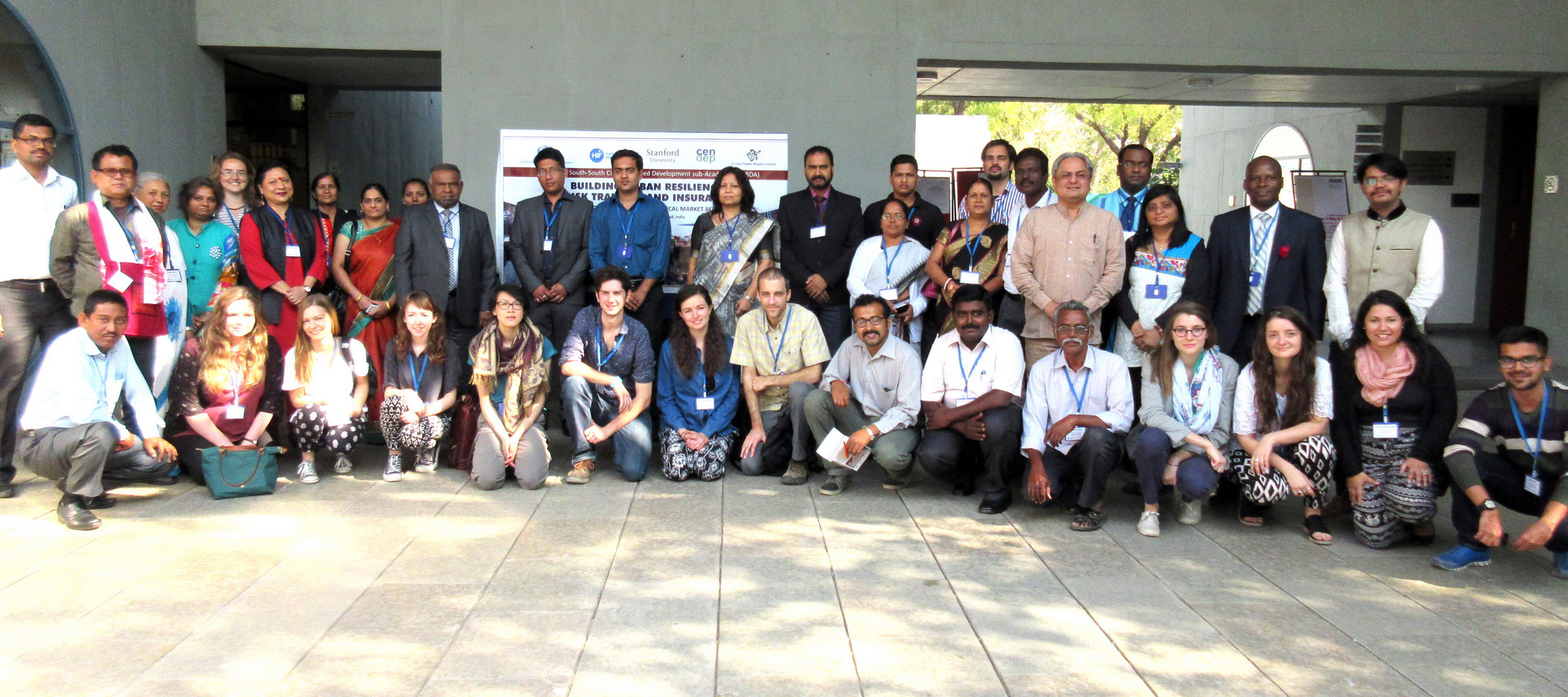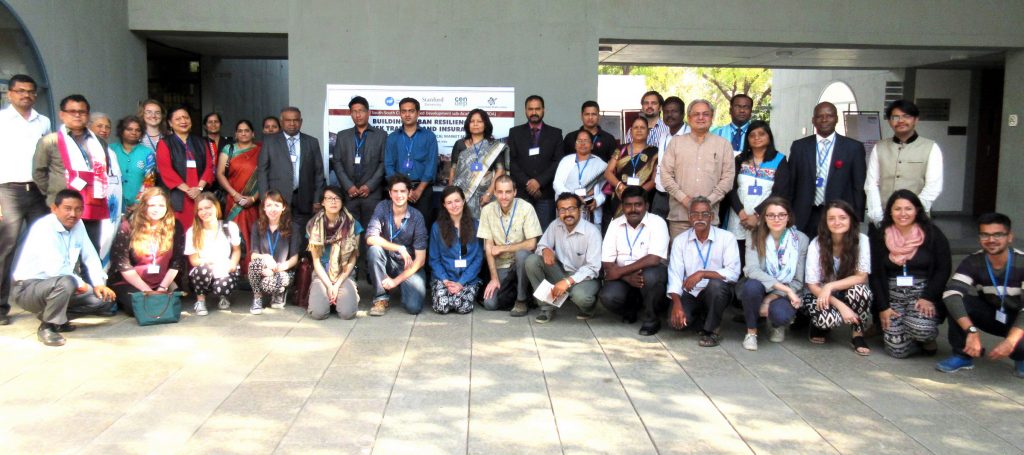Shaping the future: Our strategy for research and innovation in humanitarian response.

Shaping the future: Our strategy for research and innovation in humanitarian response.


The All India Disaster Mitigation Institute (AIDMI) in collaboration with the United Nations Office for South-South Cooperation (UNOSSC) organized the ‘8th South-South Citizenry Based Development sub-Academy (SSCBDA)’ in Ahmedabad, last month.
The theme of this year’s academy was ‘Building Urban Resilience through Risk Transfer: Protecting Small Businesses and Local Market Recovery’. This academy provided the perfect platform for several leaders, practitioners, students and members of various community based organisations (CBOs) and non-governmental organisations (NGOs) to share their experience and knowledge of reducing risks in their communities and learn from the experience and knowledge of others.
It is often observed that local communities are the first responders to any disaster. This high level of risk exposure has led these local communities to partner with local CBOs and NGOs to come up with coping mechanisms based on local knowledge systems. However, such risk reduction innovations from the grassroots often go unnoticed at regional and global levels.
 This year a total of 37 participants from 8 countries and 6 Indian states participated in the academy, drawn from government bodies, multi-lateral agencies and universities.
This year a total of 37 participants from 8 countries and 6 Indian states participated in the academy, drawn from government bodies, multi-lateral agencies and universities.
The academy was inaugurated by Mr. Denis Nkala and Mr. Mihir R. Bhatt, Managing Trustee, AIDMI. Both Mr. Nkala and Mr. Bhatt noted that small and informal businesses in urban locations provide social mobility and a dignified means of livelihood to the working poor. However, natural hazards and climate extremes threaten the continuity of these businesses. Risk transfer approaches such as disaster micro-insurance for small and informal businesses may be a viable option for building the resilience of these businesses against disaster and climate risks.
The first day of the academy consisted of three sessions highlighting the sub-national and regional views on urban resilience and risk transfer. The day ended with case studies presented by CBOs from Assam, Odisha and Tamil Nadu. Important issues highlighted during the day included:
• Haphazard urbanization driving urban risks
• The impact of disasters on informal workers
• The significance of data on informal settlements (slums), possible areas of insurance collaboration between the government, insurance providers and NGOs
• Viable areas of overlap between disaster microinsurance and urban resilience
• Incentivizing insurance for small and informal businesses and workers
• The role that risk transfer approaches have played in building urban resilience in Nepal and Sri Lanka
The second day of the academy consisted of sessions on the themes of small businesses and risk transfer; urban resilience, risk transfer and inclusion; planning and finance for urban resilience; and climate risk insurance beyond South Asia. The important issues deliberated upon included:
• The indispensability of risk transfer mechanisms for small businesses and street vendors
• The role disaster microinsurance can play in engendering inclusion and promoting the welfare of women
• Disasters can be viewed as opportunities for sustainable and inclusive development through the promotion of grassroots women’s organizations
• Tweaking insurance services and offerings to match the needs of the urban poor
• Perspectives on disaster and climate risk microinsurance from Argentina, Brazil and France
The third and final day of the academy aimed at summing up the knowledge and experience shared by the participants during the previous two days. The lessons learnt from the academy were then located in the goals of macro policy instruments such as the Sendai Framework for Disaster Risk Reduction (SFDRR) and recently ratified Climate Deal at the Conference of Parties 21 (COP21).
The highlight of the day was the launch of a new insurance product by the participants of the academy. The insurance product has been designed on the basis of demand surveys and consultations with various stakeholders. This product targets 750 small businesses in Puri, Odisha.
The experience, expertise and knowledge of the participants of the academy have been consolidated into a ‘Learning Statement’ to promote and strengthen risk transfer and insurance in line with implementation of SFDRR PoA3 (priority of action).

 Please upgrade your browser
Please upgrade your browser
You are seeing this because you are using a browser that is not supported. The Elrha website is built using modern technology and standards. We recommend upgrading your browser with one of the following to properly view our website:
Windows MacPlease note that this is not an exhaustive list of browsers. We also do not intend to recommend a particular manufacturer's browser over another's; only to suggest upgrading to a browser version that is compliant with current standards to give you the best and most secure browsing experience.